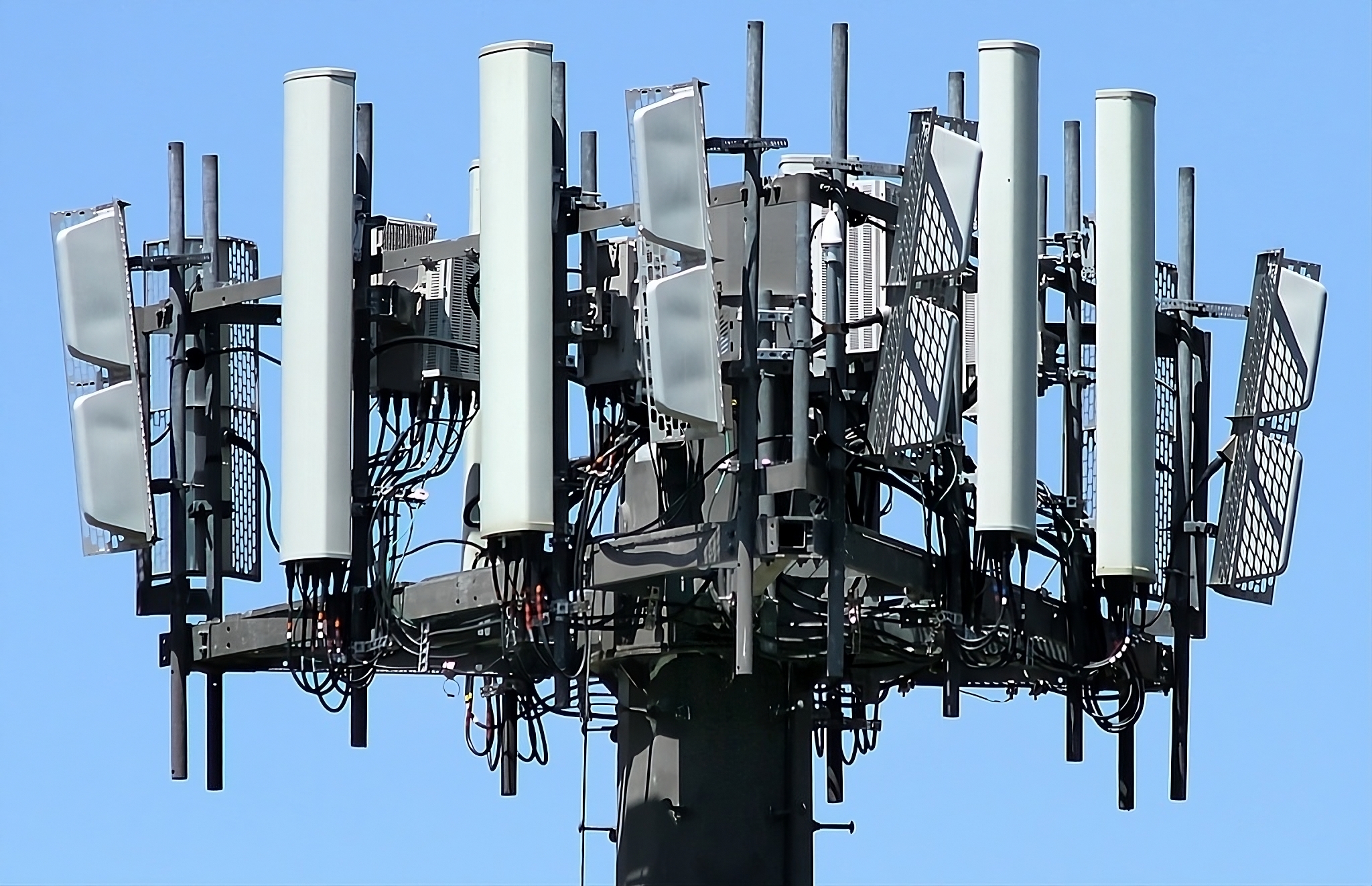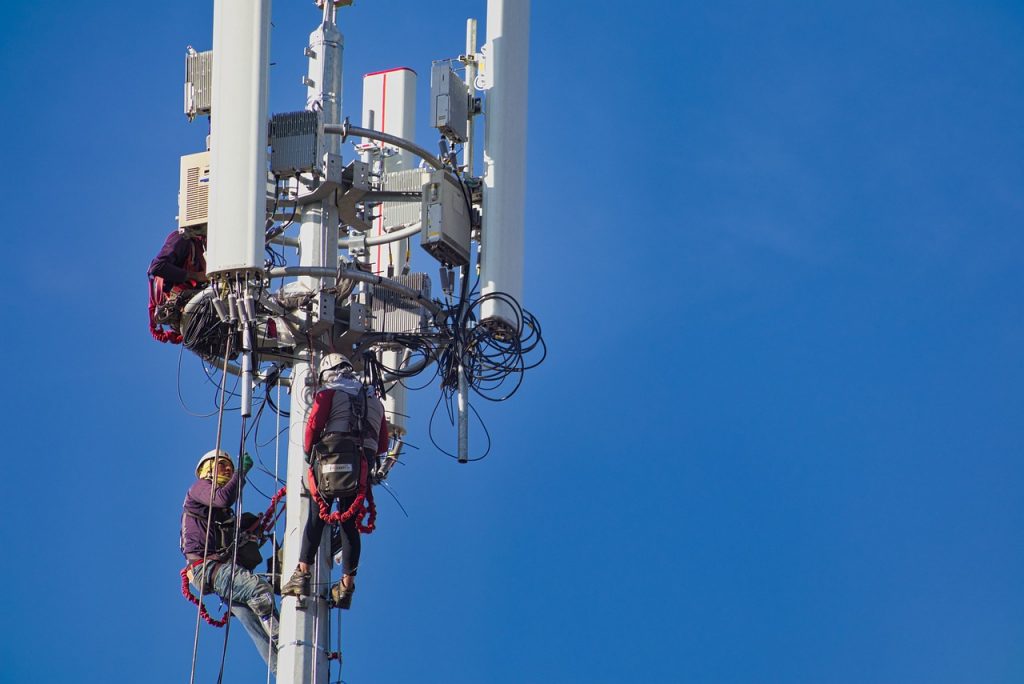Tech
The Emergence of 5G Technology

|
Getting your Trinity Audio player ready...
|
It has become abundantly clear that we are in the midst of a technological revolution precipitated by the emergence of fifth-generation cellular network technology, commonly referred to as 5G. Proponents of 5G argue that it has the potential to radically transform societies and economies for the better by enabling unprecedented connectivity and innovation. However, as with any transformative new technology, careful consideration must be given to how it may also reshape societies and individuals in unintended – and potentially undesirable – ways.
The promise of 5G is its ability to revolutionize our digital infrastructure by increasing data speeds and network responsiveness by an order of magnitude compared to previous generations. Advocates argue this will unleash a new wave of innovation across many domains. For example, 5G will help enable the full realization of concepts like the “smart cities” of the future, where advanced digital networks optimize virtually every aspect of urban infrastructure and services. 5G will also help usher in an era of driverless vehicles by allowing vehicles to instantly communicate their locations and trajectories to avoid collisions. Applications in telemedicine, online education, and remote work are also poised to flourish with the responsiveness of 5G networks.
On the surface, who could argue against such progress? And yet, any thinking person must consider not just the promises of new technologies, but their deeper implications and unintended consequences. The emergence of 5G will undoubtedly reshape society in revolutionary ways, but as with any revolution, change often happens too rapidly for individuals and social systems left behind to adapt constructively. This brings us to some concerns that must be addressed regarding 5G and its effects on individuals and society.

Perhaps the most concerning issue with 5G revolves around privacy and surveillance. The vast network of small antenna nodes necessary for 5G’s high bandwidth will make constant and pervasive data collection almost unavoidable.
A related issue is how 5G may reshape power dynamics in society. When nearly every aspect of modern life becomes optimized and connected through digital networks, those who control these networks will increasingly wield outsized influence over others. Personal independence and individualism—core pillars of Western society—may be threatened if the “smart” systems of 5G make people ever more dependent on highly centralized services for basic needs and functioning. Nor can we ignore the possibility of social control through these connected systems if they are misused by authoritarian regimes. Maintaining individual sovereignty and limiting centralized digital control must factor strongly into governance decisions around 5G.
Questions also persist about 5G’s health effects despite assurances of safety. While long-term studies are still evaluating potential links between electromagnetic radiation and conditions like cancer, the massive increase in antenna nodes through 5G will substantially increase overall public exposure. Though risks may end up small, a precautionary approach is warranted given the health stakes—rushing forward with a vast new infrastructure before addressing lingering safety questions risks undermining public trust. With any new technology, unintended consequences may emerge only after widespread adoption. It is better to address uncertainties proactively rather than reactively.
In establishing 5G networks, there are no easy or simplistic solutions—only tradeoffs. Technology progresses whether we bid it or not, but it need not progress unmanaged or unquestioned either. With prudent oversight and safeguards instituted before full-scale societal transformation, 5G’s promise need not be pitted against concerns for individual privacy, autonomy, and well-being. As in all domains of life where progress and innovation occur, balance and moderation must guide 5G’s implementation if its benefits far outweigh its costs and unintended effects on individuals and society. Progress for progress’s sake risks disturbing more than it creates if unexpected consequences are not anticipated and mitigated. This will require ongoing public discussion and input from diverse perspectives as 5G reshapes the world in ways that have yet to be fully understood.
Tech
Elon Musk blasts Apple-OpenAI deal and threatens to ban the iPhone from his companies

Steph Deschamps / June 13, 2024
Tech
A New Era of Global Communication Through Outernet

|
Getting your Trinity Audio player ready...
|
As global connectivity continues to expand through the advancement of fiber and wireless networks, there still exist gaps that marginalize vulnerable populations and hinder the progression of society as a whole. Fortunately, there are promising alternatives on the horizon that aim to bridge these divisions through ambitious satellite ventures, providing internet directly from orbiting satellites. This concept, known as “Outernet”, represents a future where unprecedented access leads to shared understanding and collaborative advancement based on the principles of egalitarian care.
The pioneers of Outernet are deploying constellations of cube satellites that transmit narrowband internet signals, captured by portable ground stations. These satellites are strategically positioned in orbit to maximize coverage, ensuring connectivity even in polar regions and areas where terrestrial cables fall short. The compact size of these cube seats allows for scalability and regular replenishments to maintain services as hardware ages, all while adhering to sustainable practices under close technical supervision.
In addition to overcoming technical challenges, Outernet’s transmission protocols intelligently manage signals to navigate interference and atmospheric fluctuations across satellites. International standards are in place to ensure fair accessibility, promoting shared understanding over monopolization tendencies. As a result, Outernet emerges as a platform that facilitates widespread communication, promoting balanced outreach and fostering societal growth in a volatile orbital environment.
Initial implementations of Outernet have already provided vital connections to isolated researchers in polar regions and disaster-stricken areas, previously starved of information. The provision of narrowband internet has facilitated coordination in critical situations, demonstrating the potential of such technology to save lives and foster reciprocity in times of need.
Furthermore, the expansion of internet access in rural areas has empowered small businesses, education initiatives, and civic engagement, aligning with age-old principles of responsible sharing and abundance. In crises, Outernet provides swift and balanced relief efforts through disaster warnings and military communications, showcasing its potential as a preserver of life and coordinator of outreach guided by the spirit of cooperation rather than competition.
Nevertheless, the proliferation of digital connectivity brings forth technical and ethical dilemmas, especially when addressing the needs of digitally disconnected populations. Indigenous communities, in particular, face challenges in navigating the dissemination of information while preserving cultural values, viewing these tensions not as limitations but as opportunities for cultural enrichment and shared progress.
Meanwhile, the responsible stewardship of orbital environments is paramount as Outernet continues to expand its reach. By adhering to international norms and monitoring the removal of defunct satellites, this initiative strives to protect delicate ecosystems and uphold philosophical principles that guide sustainable progress for all. Outernet’s applications are designed to be balanced and spiritually enriching, acting as vessels for advancement while maintaining a deep respect for humanity’s collective flourishing amid societal changes.
Maher Asaad Baker
ماهر أسعد بكر
https://maher.solav.me
Tech
How Apple Vision Pro is Revolutionizing the Digital Experience

|
Getting your Trinity Audio player ready...
|
Let us venture forth into the burgeoning realm of spatial computing, where man and machine grow ever closer in their synchronous dance. Apple Vision Pro offers us glimpses of a magnificent future, one where the rigid boundaries between virtual and visceral dissolve before our very eyes. Through its intuitiveness and profound understanding of how humans perceive and interact with the world, it seamlessly blends digital content into physical space.
With but a glance, users may navigate this nascent frontier. Eye, hand, and voice alike serve as conduits, allowing unfettered exploration where before there were limitations. Doors long closed swing open, revealing untold possibilities for play, productivity, and presence. No longer tethered to static planes, applications leap beyond screens to occupy the infinite canvas of reality itself. Notes, webpages, and conversations materialize as if conjured, ready for scaling and rearrangement at a thought.
What place cannot become a theater with but a word? Apple Vision Pro transforms any room into a veritable Odeon, projecting entertainment onto vast vistas visible only to the solitary viewer. Greater than any mere television, its displays offer pixel densities to shame the highest resolutions, immersing the observer in visual and aural splendor. And through the magic of spatial computing, users watch not from a remove but as active participants, present yet voyaging far. Flickering images speak in wraithlike 3D, while sounds emerge naturally from all sides as if from an unfolding dream.
Yet its vision peers not only outwards but inwards as well, capturing fleeting moments in exquisite photonic sculpture. Spatial photos resurrect cherished memories in intimate detail, allowing the beholder to relive and explore them anew through novel modalities. Time folds in on itself as virtual reality rejoins actuality, granting novel modes of emotional succor and nostalgic release. Likewise, seamless integration with iPhone ushers in novel avenues of artistic expression and personal chronicle across platforms.
Distance too melts before its visage. Through platforms like FaceTime, Apple Vision Pro annihilates bounds of land and cyber, transporting dispersed colleagues or cherished ones together in shared virtual space. Spatial Audio places each conversant as if physically present while large-scale video ports dissolve the peripheries. Apps then complement discourse, enabling synchronous collaboration as though in the same room. Work thus ceases being something done and becomes a fellowship experienced, elevating productivity through heightened sociality, presence, and care for fellow travelers along this technological path.
In every exquisite detail, Apple Vision Pro attests to generations of refinement in balancing form and function. Three-dimensionally sculpted glass flows as a topological manifold into gracefully curving metal, contoured for comfort yet empowered to perceive. Digital optics transport visual splendors while discrete arrays track motion with machine precision. An intimate light seal cuts stray radiance, and speakers spatialize soundwaves into a private surround, maintaining perceptual richness even as we interface. It stands as a triumph of patience, expertise, and insight into the human condition – a beacon showing the glorious heights attainable through responsible innovation.







